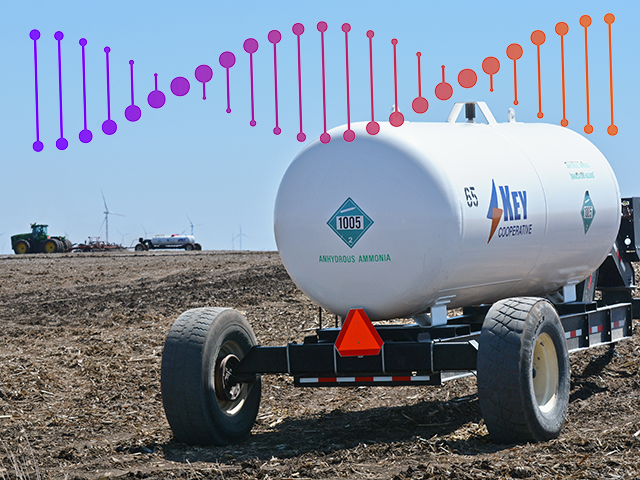Croplink
AI Identifies Genes To Enhance N-Use Efficiency
Machine learning can pinpoint genes in crops that will help them grow with less fertilizer, according to a recently published study.
Scientists working together at multiple universities demonstrated that machine-learning models can predict genes of importance for nitrogen-use efficiency in corn, says a study published in "Nature Communications." Read more about the study at the University of Illinois' College of Agricultural, Consumer and Environmental Sciences website at https://aces.illinois.edu/…
P[L1] D[0x0] M[300x250] OOP[F] ADUNIT[] T[]
"Now that we can more accurately predict which corn hybrids are better at using nitrogen fertilizer in the field, we can rapidly improve this trait," study author Stephen Moose, Alexander professor of crop sciences at the University of Illinois, said in a story published by the university. "Increasing nitrogen-use efficiency in corn and other crops offers three key benefits by lowering farmer costs, reducing environmental pollution and mitigating greenhouse gas emissions from agriculture."
Using genomic data to predict outcomes in agriculture is both promising and challenging. Researchers are working to determine how to use vast amounts of genomic data to predict how organisms respond to changes in nutrition, toxins and pathogen exposure, which, in turn, would inform crop improvement. But, the implications go beyond crops, providing insights into disease prognosis, epidemiology and public health.
Researchers conducted experiments that tested whether eight "master switch" genes predicted from the machine-learning model actually contribute to nitrogen-use efficiency, according to the published report. They showed that altered expression of these switch genes in Arabidopsis or corn could increase plant growth in low nitrogen soils, which they tested both in the lab at New York University and in corn fields at the University of Illinois.
**
-- Follow the latest from Matthew Wilde, Crops Editor, by visiting the Production Blogs at dtnpf.com or following him on Twitter @progressivwilde
[PF_1221]
(c) Copyright 2021 DTN, LLC. All rights reserved.



